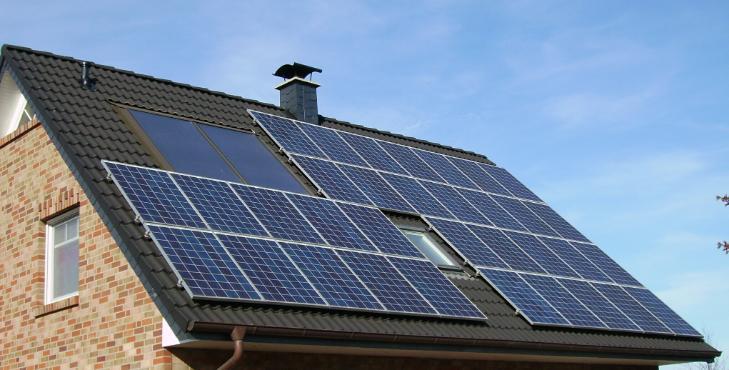Putting power in the hands of households

Innovations are making the energy system flexible and safe enough so households can trade the energy they generate with each other, as well as with the National Grid.
Research undertaken at Durham University is leading the new innovations.
The UK’s electricity networks are serving millions of people every day and are facing a challenging future, with ageing infrastructure and increasing reliance on renewable energy sources.
With the fluctuating and seasonal generation of renewable sources, combined with increasing demand for electricity, the development of smart energy technologies is key to:
- improving the reliability, security, and efficiency of the UK’s electricity networks
- keep the lights on at minimum cost to consumers.
Balancing supply and demand
The Engineering and Physical Sciences Research Council funded researchers have developed a smart grid application that enables distributed generation at the household and community level to be aggregated.
Supply and demand can be balanced in real time by aggregating the capacity of many diverse distributed energy resources and multiple flexible demands into a single Virtual Power Plant (VPP).
The result is a responsive and reliable power source that has the potential to be more efficient along with the ability to respond to changes in energy demand to avoid blackouts or shortages.
Durham Energy Institute’s Professor Hongjian Sun, worked with project partners:
- Sunamp Limited, an innovation leader in the field of thermal storage
- Intel Corporation Ltd, the computing and smart technology innovators.
This was to develop a more advanced design of VPP.
A hardware testbed of VPP with two-way real-time communication capability was also implemented in the Durham University’s Smart Grid Laboratory.
Maximising renewable energy
This innovation can help provide more efficient management of renewable energy, balancing demand to ensure that:
- the National Grid is not overloaded
- operational efficiency of power grids are improved for system operators
- energy costs are reduced for consumers.
VPP is very powerful for maximising the penetration of renewable energy, enabling the grid to cope with more renewable energy resource. On the other hand it also brings benefits to the consumer allowing them to access revenues from their own generation so it can also help to encourage uptake of renewable energy.


/prod01/prodbucket01/media/durham-university/research-/research-institutes/durham-energy-institute/landscapes-cityscapes-montages-etc/Walney-sunset-2000X800.jpg)
